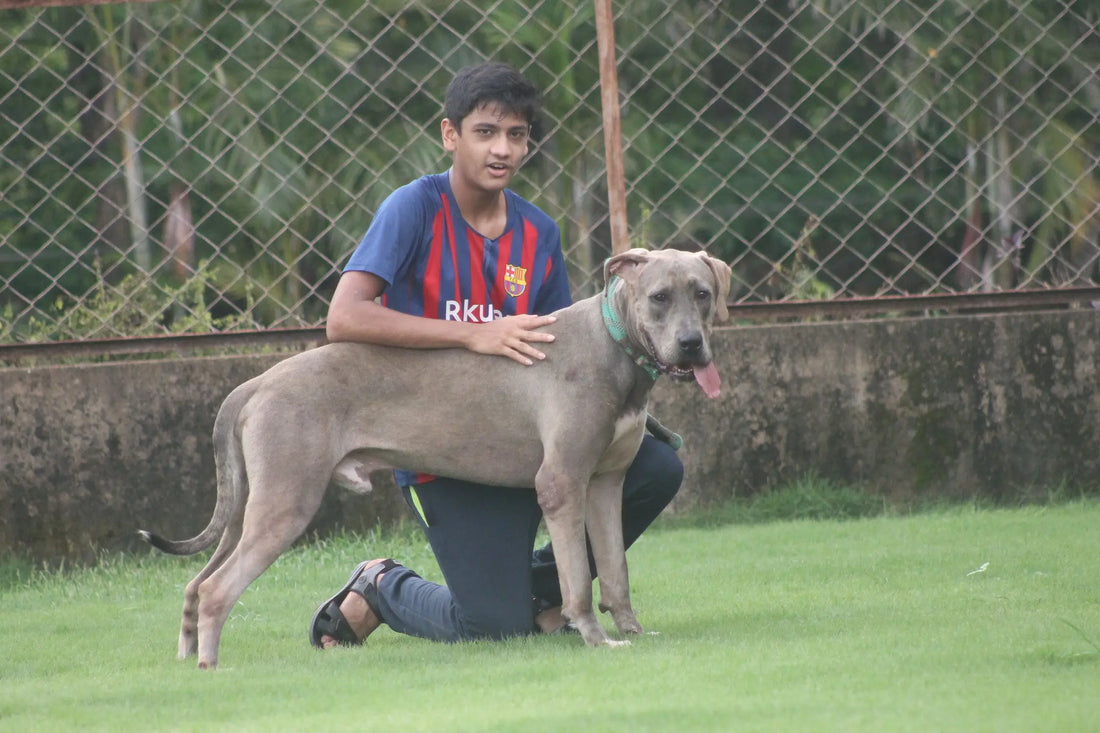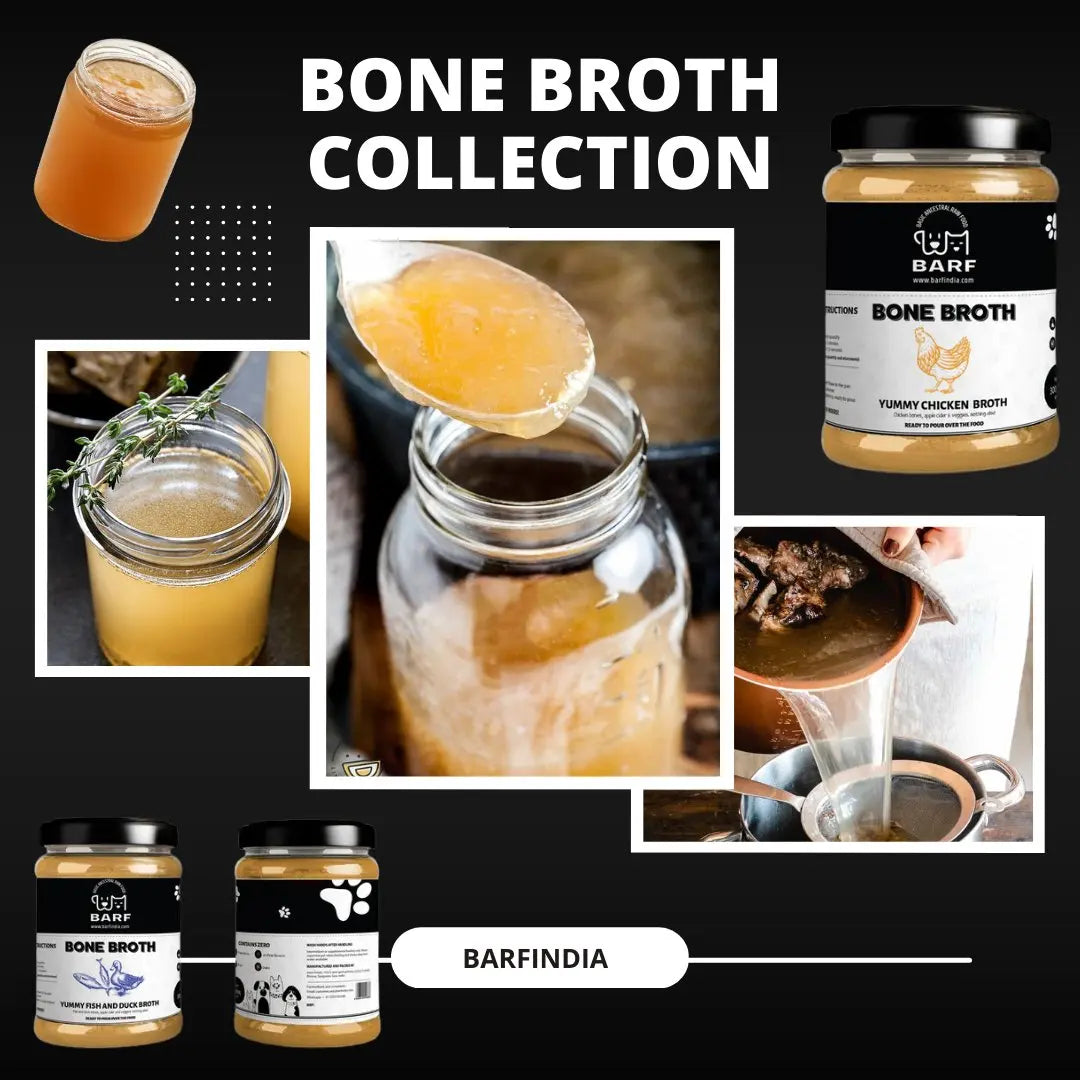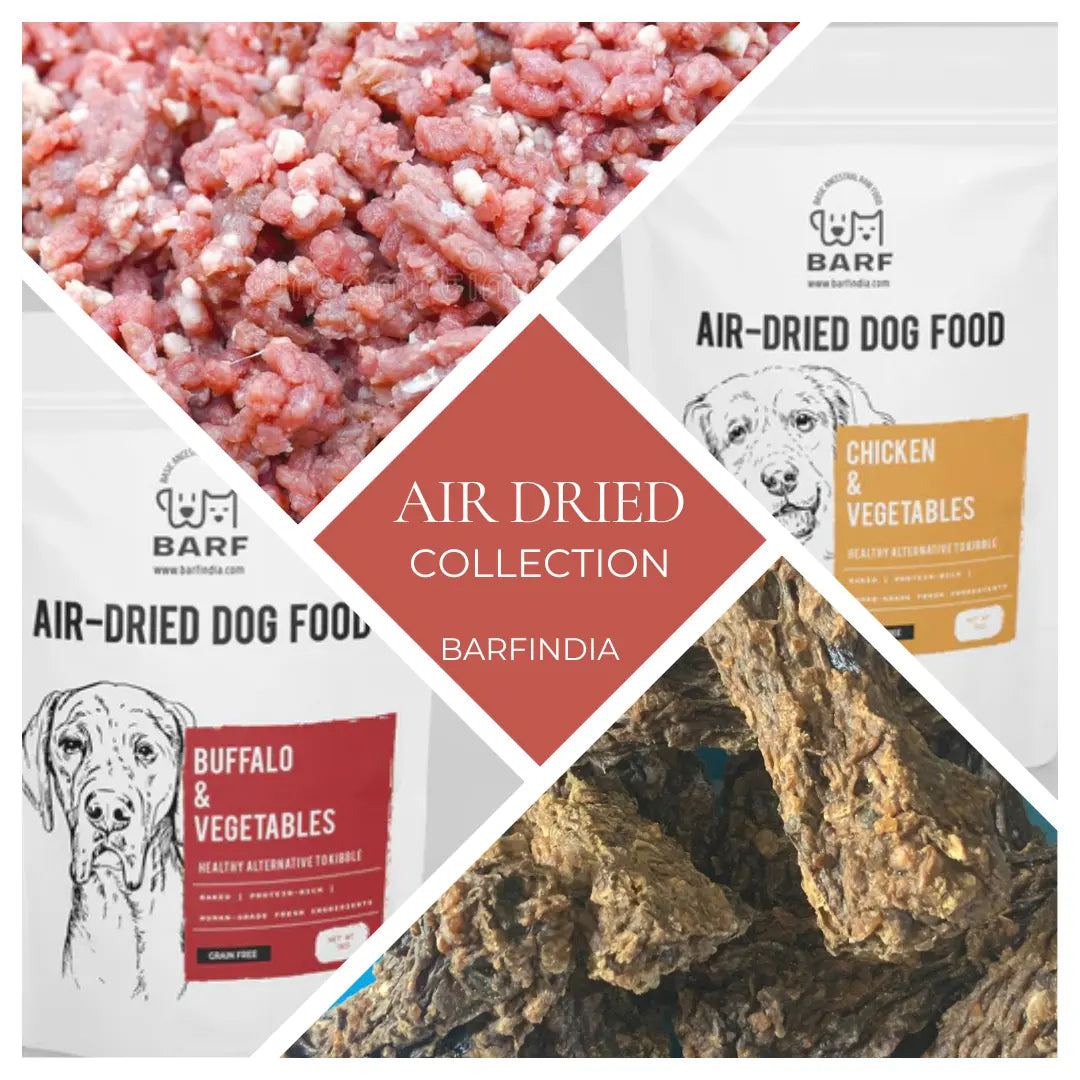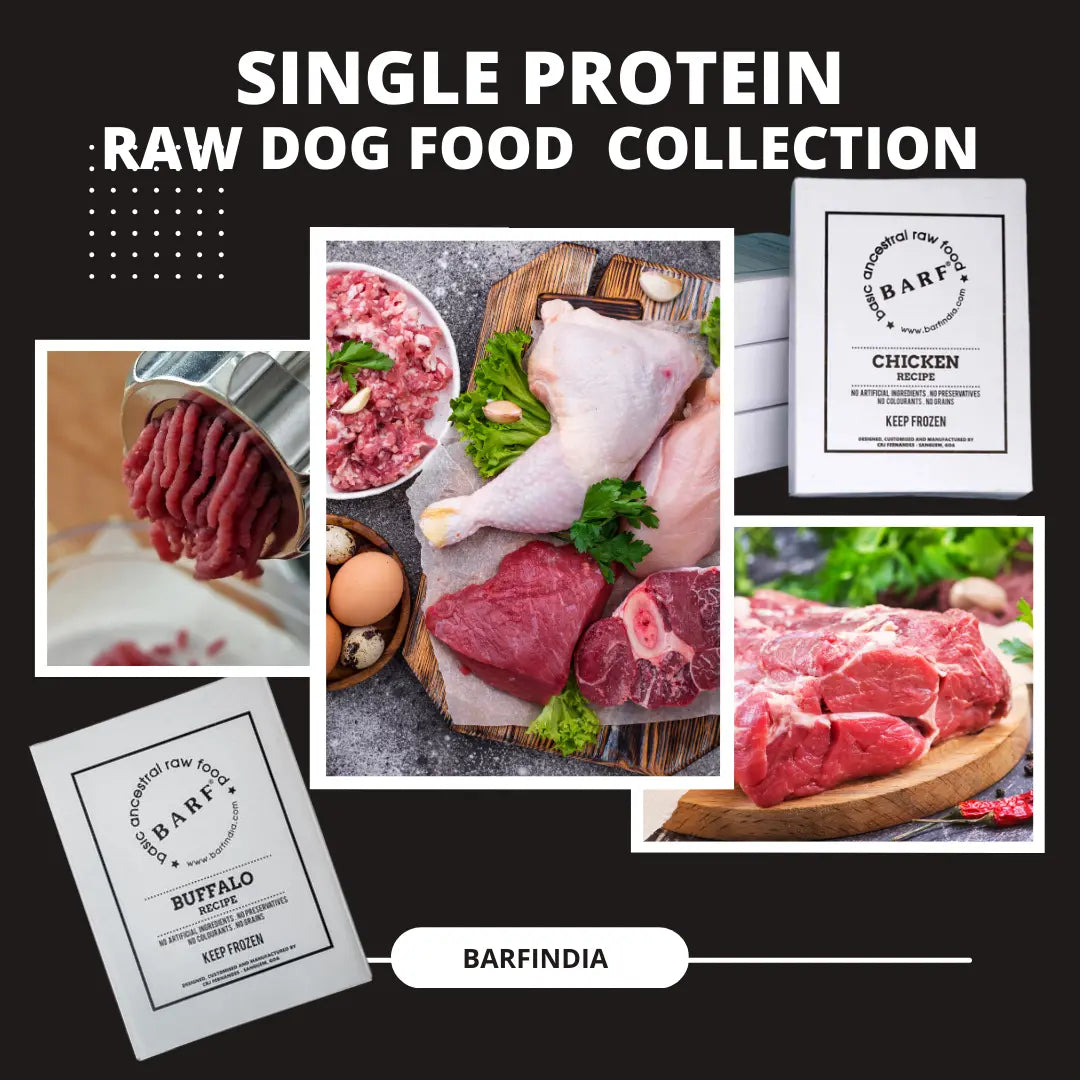
This amino acid deficiency can harm your dog.
Nivedita FernandesAmino Acid Deficiency. The Hidden Danger: Tryptophan Deficiency in Single Protein Diets and Its Impact on Dogs' Health
Amino acid deficiency, especially a lack of tryptophan, is a hidden risk in single protein diets for dogs. As pet owners, we aim to provide the best nutrition for our furry companions, but in the pursuit of simplicity or due to dietary misconceptions, some may choose single protein meals. While these may seem convenient, they can lead to serious health consequences. In this blog, we'll explore why tryptophan deficiency in such diets can be dangerous and how it affects your dog’s well-being.
Understanding Tryptophan:
Tryptophan is an essential amino acid, meaning it cannot be synthesized by the dog's body and must be obtained through their diet. As a precursor to serotonin and melatonin, tryptophan plays critical roles in regulating mood, behavior, sleep-wake cycles, and immune function. Additionally, tryptophan is necessary for protein synthesis, making it essential for muscle growth, repair, and overall health.
The Pitfall of Single Protein Diets:
Single protein diets, which consist of feeding only one type of protein source to dogs, may seem straightforward, but they can inadvertently lead to nutritional deficiencies, including tryptophan deficiency. Here's why:
-
Limited Nutritional Variety: Single protein diets lack the diversity of nutrients found in a varied diet. While the chosen protein source may provide some essential nutrients, it's unlikely to meet all of a dog's nutritional needs. Tryptophan levels vary among different protein sources, and relying solely on one protein may result in insufficient tryptophan intake.
-
Inadequate Tryptophan Content: Not all protein sources are created equal when it comes to tryptophan content. Some proteins, such as turkey and chicken, are relatively rich in tryptophan, while others, like beef or fish, may contain lower levels. If a single protein diet predominantly consists of a protein source with low tryptophan content, dogs may not consume enough tryptophan to meet their requirements.
-
Reduced Bioavailability: Even if a single protein diet contains adequate levels of tryptophan on paper, other factors can affect its bioavailability and utilization by the dog's body. Processing methods, cooking temperatures, and food storage conditions can all impact the availability of tryptophan in the diet. Raw diets, which preserve the natural integrity of ingredients, may offer better tryptophan bioavailability compared to heavily processed commercial diets.
The Dangers of amino Acid Deficiency - Tryptophan Deficiency:
Tryptophan deficiency can have far-reaching consequences for a dog's health and well-being. Here are some of the dangers associated with tryptophan deficiency in single protein diets:
-
Behavioral Changes: Tryptophan is a precursor to serotonin, a neurotransmitter that regulates mood and behavior. Insufficient tryptophan levels can lead to imbalances in serotonin production, resulting in mood disturbances, anxiety, irritability, and aggressive behavior in dogs. Behavioral issues may manifest as excessive barking, destructive chewing, or withdrawal from social interaction.
-
Sleep Disturbances: Tryptophan is also a precursor to melatonin, a hormone that regulates sleep-wake cycles and promotes restful sleep. Dogs deficient in tryptophan may experience disruptions in their sleep patterns, including difficulty falling asleep, frequent waking during the night, or restless sleep. Poor sleep quality can contribute to daytime fatigue, lethargy, and decreased cognitive function in dogs.
-
Weakened Immune System: Tryptophan plays a crucial role in supporting immune function by influencing the production of antibodies and enhancing immune cell activity. Dogs with tryptophan deficiency may have compromised immune systems, making them more susceptible to infections, illnesses, and chronic health conditions. Frequent bouts of sickness, prolonged recovery times, and reduced resistance to pathogens are common consequences of immune dysfunction.
-
Muscle Weakness and Wasting: As an essential amino acid, tryptophan is necessary for protein synthesis and muscle maintenance. Tryptophan deficiency can impair protein metabolism, leading to muscle weakness, atrophy, and poor muscle tone in dogs. Chronic tryptophan deficiency may contribute to reduced exercise tolerance, decreased mobility, and overall weakness in affected animals.
-
Digestive Issues: Tryptophan deficiency may also affect digestive health in dogs, as serotonin plays a role in regulating gastrointestinal function. Insufficient tryptophan levels can disrupt digestive processes, leading to symptoms such as nausea, vomiting, diarrhea, or constipation. Dogs may experience gastrointestinal discomfort, poor appetite, and nutrient malabsorption due to impaired serotonin signaling in the gut.
Good Sources of Tryptophan:
Several raw meats are rich sources of tryptophan, making them excellent choices for inclusion in a dog's diet to ensure adequate intake of this essential amino acid. Here are some raw meats that are particularly high in tryptophan:
-
Turkey: Turkey is renowned for its high tryptophan content, making it an excellent protein source for dogs. Whether it's turkey breast, ground turkey, or turkey necks, incorporating this lean meat into a dog's raw diet can help boost their tryptophan intake. Additionally, turkey organs such as the liver and heart are also rich in tryptophan and can provide added nutritional benefits.
-
Duck: Duck meat is known for its rich flavor and nutritional density, including its tryptophan content. Whether it's duck breast, legs, or wings, incorporating duck into a dog's raw diet can provide a tasty and nutrient-rich protein source. Duck organs such as the liver and heart are also valuable additions to ensure a well-rounded diet for dogs.
-
Lamb: Lamb is another protein source that contains tryptophan and can be included in a dog's raw diet for variety. Whether it's lamb shoulder, chops, or ribs, incorporating lamb meat into a dog's meals can provide essential amino acids, vitamins, and minerals. Lamb organs such as the liver and kidney can also be included to provide additional nutritional benefits.
Conclusion:
In conclusion, tryptophan deficiency in single protein diets poses significant risks to dogs' health and well-being. As an essential amino acid with diverse physiological functions, tryptophan plays a vital role in mood regulation, sleep quality, immune function, muscle maintenance, and digestive health. Pet owners must prioritize dietary variety and ensure that their dogs receive adequate tryptophan levels to support optimal health. By choosing balanced and nutritionally diverse diets, such as multi-protein raw diets, pet owners can help safeguard their dogs against the dangers of tryptophan deficiency and promote long-term vitality and well-being.



